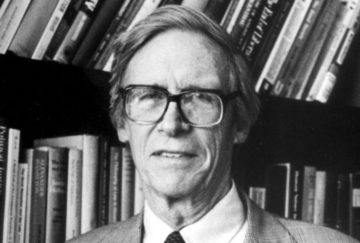 Joshua Cohen in Boston Review:
Joshua Cohen in Boston Review:
The American political philosopher John Rawls was born in 1921 and published A Theory of Justice in 1971. In celebration of these 100th and 50th anniversaries, we provide this reading list of great Rawls-related essays that have appeared in Boston Review. One of the pieces is by Rawls himself, and came to us through Owen Fiss. Fiss sent us a 1981 letter that he had received from Rawls recounting a conversation with Harry Kalven—whose book, A Worthy Tradition (1988), shaped Rawls’s understanding of freedom of speech—about the perfections of baseball. Rawls was also a regular reader of BR, which he described as “a jewel,” with “serious discussion at the highest level of pressing issues.” His most important contribution to BR comes from his conception of justice and democracy, which has helped to shape our editorial agenda.
In A Theory of Justice, Rawls presented an account of justice—he called it “justice as fairness”—that proposed a striking marriage of the values of liberty and equality. For much of the past century, the idea of a political philosophy devoted to both liberty and equality seemed to many people a contradiction in terms. Outraged by vast differences between the lives of rich and poor, egalitarians condemned classical liberals for giving undue attention to formal rights and liberties while remaining complacent in the face of grim inequalities of fortune on earth. Classical liberals, meanwhile, rejected egalitarianism for its paternalism and willingness to sacrifice human freedom in the name of a life-flattening equality. “Equality comes sharply into conflict with freedom,” Milton Friedman had written in Capitalism and Freedom (1962): “one must choose. One cannot be both an egalitarian . . . and a liberal.”
More here.
